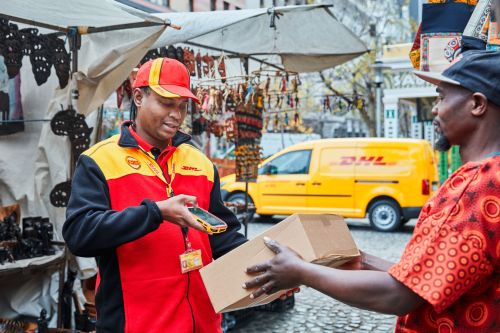DHL Group says it will invest over €300million in Sub-Saharan Africa (SSA). The multi-year initiative will be deployed across DHL Express, DHL Global Forwarding, and DHL Supply Chain to expand infrastructure and enhance services for sectors including e-commerce, perishables, energy, and life sciences and healthcare.
The investment will include upgrading gateways, adding aviation uplift and extending time-definite coverage into second cities that are emerging as demand centres under the African Continental Free Trade Area (AfCFTA). As the only integrator with a dedicated air network in Sub-Saharan Africa, Express will link these cities more tightly to Africa–Europe and Africa–Asia lanes, building on recent growth in Ethiopia and Nigeria.
DHL Global Forwarding will focus its investment on strengthening key industry solutions and expanding its capabilities in energy and industrial projects, enhancing cold-chain and perishables logistics and scaling its expertise in life sciences and healthcare
DHL says that AfCFTA is creating a continental market that can deepen intra-African commerce and open new corridors with the rest of the world. However, progress depends on continued improvements in infrastructure and trade facilitation. Cross-border flows have remained resilient and African enterprises are increasingly connecting to global value chains.
DHL Express chief executive, John Pearson, said: “Africa is at a pivotal moment in its trade journey. Despite global volatility, the continent continues to show resilience and momentum. Our investment reflects confidence in Africa’s trajectory and DHL’s commitment to enabling the trade flows that drive inclusive growth. By strengthening our network and capabilities, we aim to make it easier for African businesses, from small and medium enterprises to large corporates, to compete on the world stage.”
DHL Express Sub-Saharan Africa chief executive, Hennie Heymans, added: “Our focus is to be closer to customers and make cross-border shipping simpler and more reliable. As trade expands, businesses are asking for predictable transit times, consistent delivery performance and support that understands local conditions. By raising the bar on service and proximity, we will help more African companies trade efficiently and compete on a bigger stage.”










